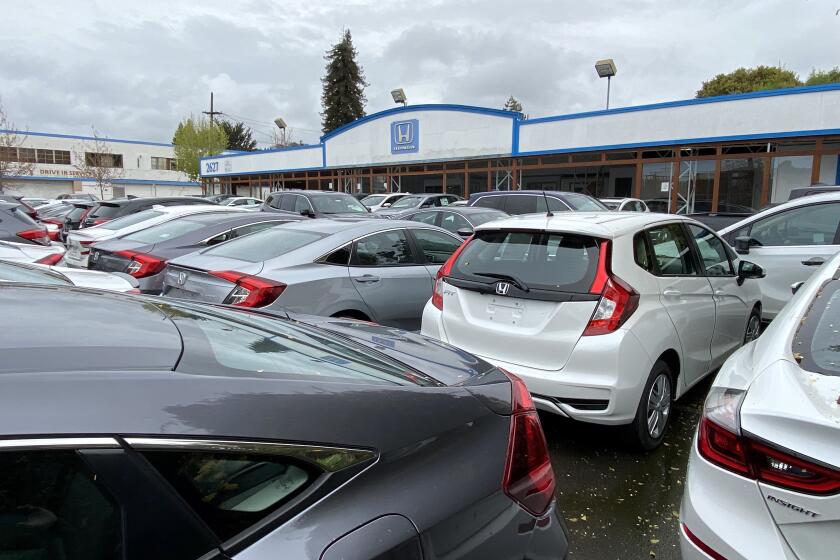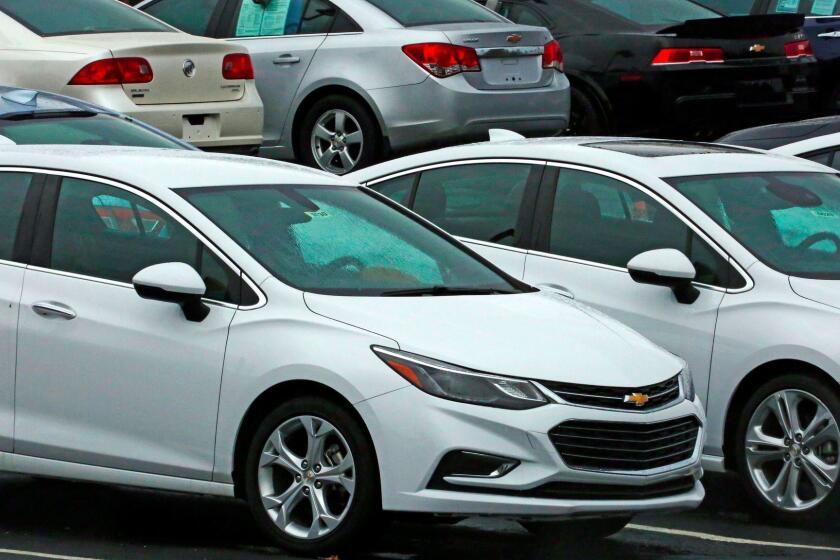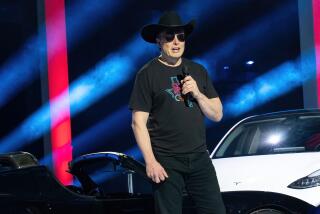Musk outburst over ‘fascist’ coronavirus shutdown shows pressure to keep up growth
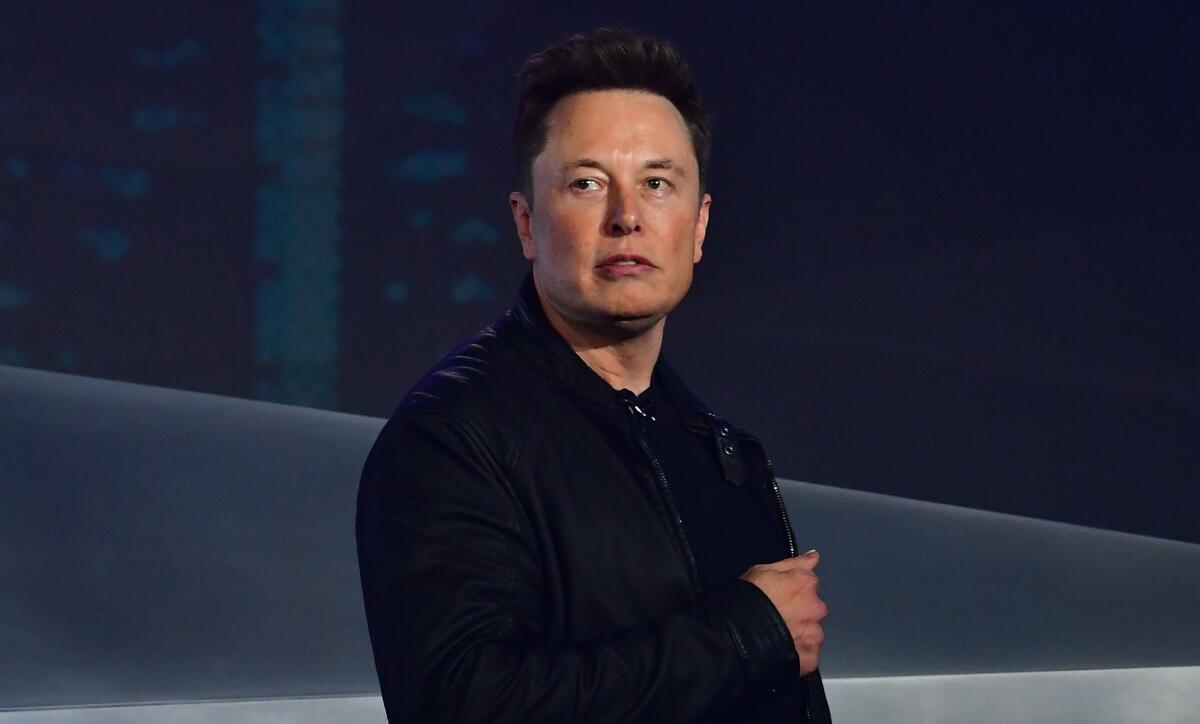
Elon Musk’s emotional eruption on a conference call with analysts Wednesday followed a couple of high-stress events. It burst forth when a financial expert asked the Tesla chief executive about how much cash the company has on hand right now.
The day started off with a video chat between Musk and Li Qiang, a powerful Chinese Communist Party politburo member, whose main job is party secretary for Shanghai, China’s biggest city, where Tesla’s new China factory sits.
The meeting was cordial, according to Shanghai media. But both men know Tesla has agreed to repay Chinese financial backers almost $1.6 billion its Shanghai subsidiary is borrowing to build and equip the factory and use for working capital. Tesla could be forced to forfeit its operations if the money is not fully repaid by December 2024.
Soon after the chat, six Bay Area counties announced an extension of their shelter-in-place orders. Musk had planned at least a partial opening of the plant on May 4. But the extension announced Wednesday runs through the month of May. Tesla’s Fremont factory closed down March 25, barred from building cars after it challenged a county order to shut down and lost. Eight weeks-plus of no production will crush revenue and cash flow. The second quarter could be brutal.
Showrooms are closed, but many car dealers sell online, with delivery to your door.
Then came the analyst conference call. One question in particular triggered Musk.
Adam Jonas, stock analyst at Morgan Stanley, asked for a “real-time update on company liquidity at the end of April.” That’s a polite Wall Street way of asking if a company’s flush enough to pay its bills.
Musk lit into the county lockdown. “Outrage. It’s an outrage!” he said.
The order, he claimed, is “forcibly imprisoning people in their homes against all of their constitutional rights,” which is “not why people came to America and built this country.”
After lauding China’s infrastructure, and criticizing the U.S. for the state of its airports and its “crumbling highways and bridges,” Musk launched back into the close-down order: “If somebody wants to stay in the house, that’s great … but to say they cannot leave their house and they will be arrested if they do, this is fascist. This is not democratic. This is not freedom. Give people back their goddamn freedom!”
Musk had already vented his frustration over the closures on social media, tweeting the previous evening “FREE AMERICA NOW.”
In fact, the county orders allow people to leave their homes, though they’re required to wear masks and keep a safe distance from others.
If Musk is a bit tetchy about Tesla’s current financial state, you can’t blame him. COVID-19 and the collapse of automobile sales has the whole industry worried.
Tesla, which had forecast production of 500,000 cars this year (up from 378,000 in 2019) said in its earnings update letter to investors it can’t forecast net income and free cash flow given current conditions, and it put its 500,000-car goal on ice.
The company’s first-quarter results, which were detailed in an official 10-Q filing Thursday, were mixed. The company hit $5.98 billion in revenue, 32% higher than the same quarter last year. Because Musk continued to build cars through most of March, a week of that in defiance of county close-down orders, the effect on quarterly sales was minor.
Tesla posted net income of $16 million, scoring for the first time a profit three quarters in a row. But that profit was based on $354 million in regulatory credits that the electric-car maker sold to other auto companies to meet environmental regulations, compared with $216 million in 2019’s first quarter. Sans those credits, the performance of Tesla’s core auto and energy businesses would have forced a reported loss of hundreds of millions of dollars.
Free cash flow available for reinvestment wasn’t pretty, with a negative $895 million flowing out to pay debt and bills, and not in to fund company growth.
Used-vehicle auctions are for now virtually paralyzed, much like the rest of the economy.
Tesla’s top numbers man, Zachary Kirkhorn, told analysts much of that shortfall is due to late deliveries caused by the novel coronavirus outbreak. He said the next 18 months will bring some “ups and downs” in liquidity but was silent on details.
The company reported about $8 billion in cash on hand as of March 31 but wouldn’t say how much of that’s left now. “I don’t have any more color to provide,” Kirkhorn told analysts.
Thursday’s 10-Q report said that Tesla has “assessed the impact” of the COVID-19 pandemic and is “not aware of any specific events or circumstances” that require the company to update the value of its assets and liabilities.
Where new money will come from is unclear. In Musk’s early days at Tesla, he claimed each new line of vehicles would be so profitable the company could fund the next line of vehicles internally. That hasn’t come close to happening.
The company has never registered an annual profit since it went public in 2010. But it’s stayed alive so far because Musk has proved himself a master at raising money. While losses have mounted, Musk kept selling stock and issuing debt, a total of $18.45 billion to date. That includes a $2.3-billion stock sale in February.
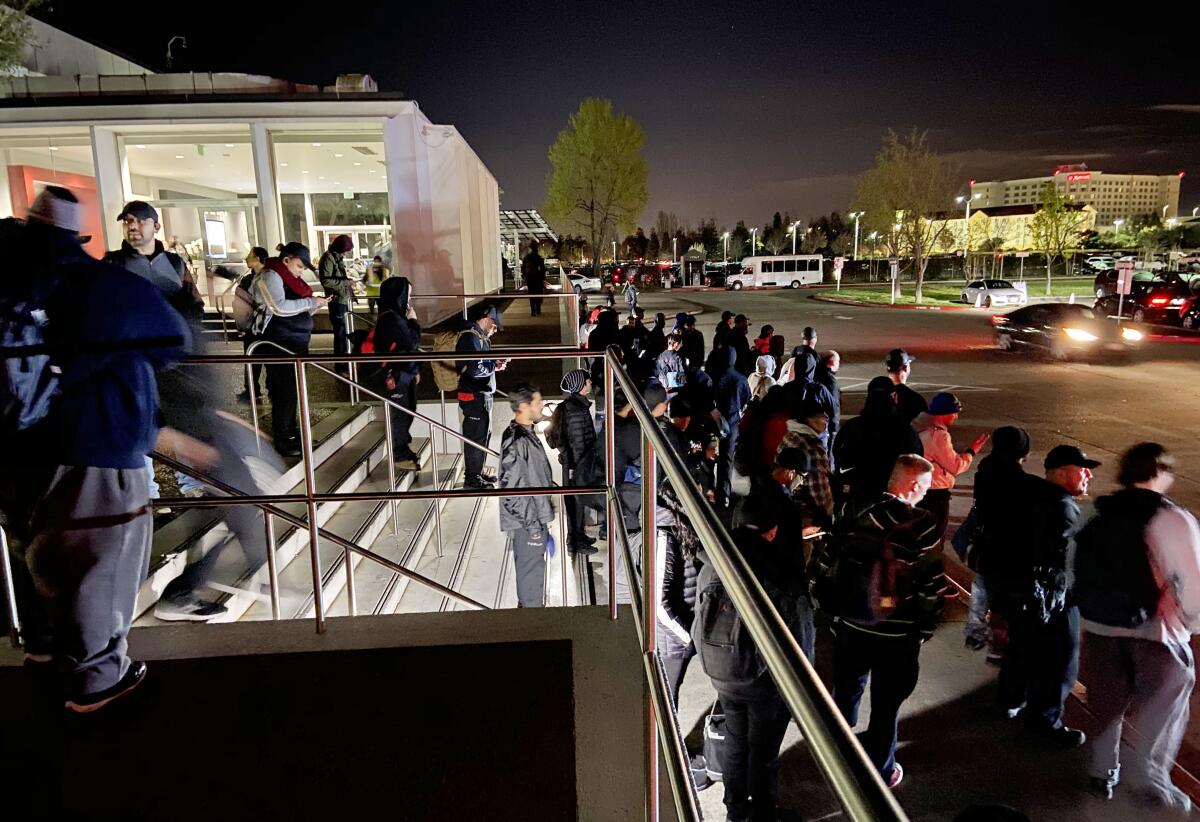
A new stock issue or debt offering could shore up Tesla’s cash balance and provide enough capital to keep Musk’s growth story alive. That future-is-bright narrative has lifted Tesla’s share price by 87% this year, to $781.88 Tuesday, albeit down from its all-time high closing of $917.42 in mid-February. That gives the company a market value of $144 billion.
Before his outburst, Musk spent much of the conference call painting a rosy picture of Tesla’s future. He said a 50% compound year-over-year growth rate in vehicle production for the next decade is “likely,” though he added: “It’s possible that it’s 40%. I will be very shocked if it’s less than 40% even with a force majeure, short of World War III.”
At 40%, that would mean the company would be making 14.46 million vehicles a year worldwide by 2030.
The company is erecting a new Model Y SUV assembly line in Shanghai and a new factory in Brandenburg, Germany, both scheduled for completion next year. The Shanghai plant is currently assembling Model 3 sedans, with a new building to house a Model Y assembly line under construction. Musk has also hinted at a Texas site for the Cybertruck, its planned electric pickup truck.
Meantime, Musk is anxiously waiting for Fremont to reopen.
More to Read
Inside the business of entertainment
The Wide Shot brings you news, analysis and insights on everything from streaming wars to production — and what it all means for the future.
You may occasionally receive promotional content from the Los Angeles Times.
